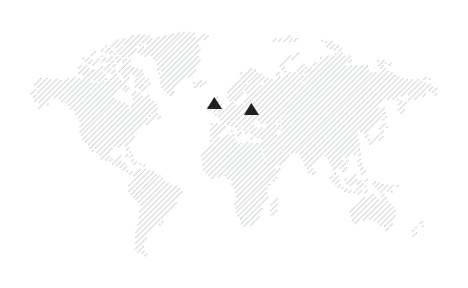Some time ago, when talking to customers, I asked them how they evaluate their website design choices and who designs their website. Many of them responded that they often choose a specialist based on price and responsiveness alone.
But how does he know exactly what needs to be done to achieve the objectives set by the customer? What colour should the buttons on the site be, and where should they be placed? The web designer is not responsible for the content, and he cannot know what exactly the site should do. The task should be set to him by the person who will use this tool in his future sales.
Choosing a website designer can depend on a number of factors, including customer needs, project budget, website complexity, timeline and other parameters. It is good if the company has a marketing expert on staff to help clearly set the task for the contractor. But most often the customer, the owner of a small firm, is focused only on the attractiveness of the template on which he will make the site.
However, everything is much more complicated.
Let’s first understand who is a web designer.
Web designer is engaged in what develops the appearance of the site, works out its structure, solves all questions regarding the appearance and placement of elements on the pages. Now all these functions are combined in the concepts of UI (User Interface) and UX (User Experience). It would seem that web development specialists should already know a lot of things, why do they need to know more about marketing?
The website that a web designer will develop is designed to attract the attention of consumers and make them linger and then take an action (purchase, registration, etc.). To create a site that is able to attract the attention of visitors, you need to be able to not only analyse your potential customers (the so-called target audience), but also have knowledge of the tools to attract attention and influence the perception of the audience.
This is where you need marketing knowledge to use all the tools correctly: typography, accent phrases and images, and even colours. There are colours that are appropriate for a particular industry, and there are those that are inappropriate for use for a particular client.
It is not enough to make the site attractive and scatter information on it, it is important that it was so to say “usable” – convenient and understandable in use. It should be properly distributed information, arranged buttons. In addition, the site must fulfil a number of functions:
– Attract attention
– Form the image of the company
– Call to action, inform, etc.
To perform these functions and require knowledge of marketing, which will allow you to create a consumer-oriented site.
Before you start developing, you need to clearly understand what we want to get as a result: an information resource, a sales tool, a catalogue of products and the like. Web designer can not know what exactly you expect from the site, and these tasks should be set before the performer it is the marketer.
Brand positioning
Specific image of the brand, its image, which was developed by specialists, should be displayed on the site. Competent use of elements of corporate symbols and the formed unique offer constitute brand positioning.
Target audience
To determine what should be the structure of the site and determine how the content should be presented, it is necessary to determine the target audience of the company (and therefore the site). The resource itself and all the information provided on it should be convenient and understandable to visitors, and for this you need to know the visitors to your site.
Competitors
Before proceeding directly to the development of the site, first you need to analyse the competitors to understand their positioning, strategies and so on. Such an analysis will allow you to build an image of the company in such a way that it will be different from the competitors, indicating the advantages over them.
Only after the main, so-called “marketing” part of the work will be done, you can proceed to the development of the site.
Web designer – just an executor of the will of the customer. And in order not to break the wood and not to design a beautiful, but useless in the work of the page, both the customer and the developer and will need knowledge of digital marketing. Someone has to analyse all the data received and apply it correctly when developing the structure of the site. The structure, which is formed on the basis of such information, allows you to make the site not only usable for a particular target audience, but also to lead visitors to the implementation of the necessary action, whether it is buying or providing information.
Thus, win only those companies that order the manufacture of the site on the basis of already conducted marketing research. And if you do not want to drain your budget for a beautiful page, which will be pleasant to you, but inconvenient for your customers, turn to the company that will be able to clearly set the goal of the performer, WHAT he should do.
When designing a website, it is important to consult with a marketer for several reasons:
Target Audience: A marketer will help identify the site’s target audience, their needs, preferences and online behaviour. This will allow you to create a site that will attract and retain the attention of that audience.
Marketing goals and strategy: The marketer will help you determine the goals of your website and develop a marketing strategy that is consistent with its design and functionality. For example, if the goal is to increase sales, the marketer will suggest appropriate website elements and features to achieve that goal.
Search Engine Optimisation (SEO): The marketer will help optimise the website for search engines (SEO) so that it is better visible in search results. This includes proper keyword usage, meta tag optimisation, URL structure and other aspects that can affect a site’s visibility in search engines.
Analytics and Monitoring: The marketer will help you set up analytics systems to track website traffic, user behaviour, conversions and other metrics. This will allow you to understand the effectiveness of your website and make appropriate changes to improve it.
Competitive landscape: A marketer will help you analyse your competitors and identify their strengths and weaknesses. This will help you develop a strategy that will make your site stand out from the competition and attract more attention from your target audience.
Overall, consulting with a marketer will help you create a website that will not only be functional and attractive, but will also effectively fulfil your business and marketing goals.


